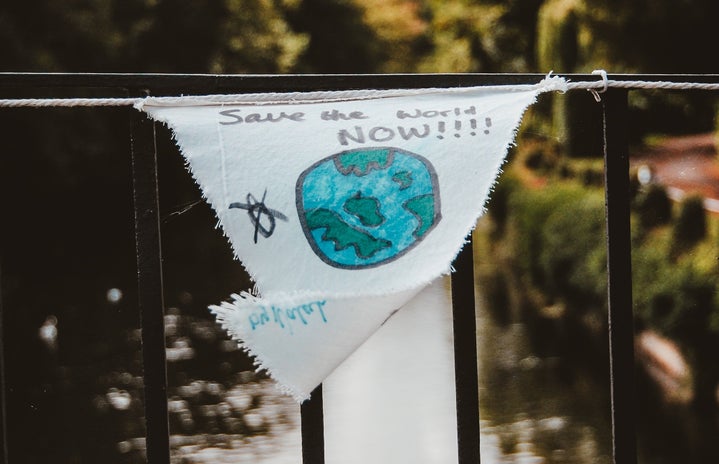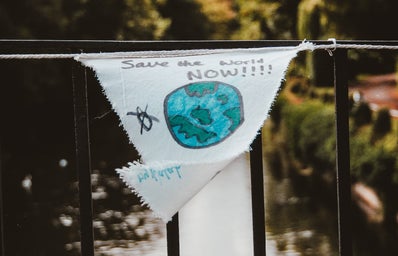Back in 2004, The Indian Ocean experienced one of the most horrific natural disasters in history. Britannica.com states, “On December 26, an undersea earthquake with a magnitude of 9.1 struck off the coast Indonesia…” It was only several hours later when this earthquake triggered a massive tsunami that reached wave heights of over 30 feet.
This earthquake was the second strongest ever-recorded in history, and along with the severity of the tsunami, the death toll was estimated to be around 230,000 people. Hundreds of thousands of people were left homeless. Kids ran around in tears without their parents. Thailand, Malaysia, India, Africa, and Sri Lanka were also affected, as well ass thousands of foreign travelers. With a lack of food, clean water, medical treatment, and difficulties facing relief workers, it seemed all hope was lost.
While the environment suffered and billions of dollars were being spent for aid, it seemed as if this devastation was the talk of the town. However, this was before the rise of social media and according to bbc.com, “Facebook was founded in early 2004 – the year the tsunami hit – but it wasn’t open to the general public at the time. Twitter didn’t come into existence until 2006. And part of the inspiration for YouTube came when a founder was looking for online videos of the tsunami – and couldn’t find them.” Despite having so much media coverage, social media was still developing into how it functions today: as another source of news.
It’s been 14 years since the damage of the first earthquake, and so far the death toll from the recent earthquake that hit Indonesia now reaches over 2,000. This earthquake came with a magnitude of 7.5 on September 28, and it didn’t stop there. CBC news stated that a volcano erupted with spewing ash up to 19,000 feet into the air, along with another tsunami that hit as well. But are people really talking about this? Not exactly.
Indonesia is in desperate need of aid, and people don’t even realize the devastation of living within the Ring of Fire, an area where many earthquakes and volcanic eruptions occur. Despite significant media coverage, social media is saying something different. The Cardi B. and Nicki Minaj fight grabbed the attention of thousands of fans on September 8. The hotel fight was caught on camera and spurred more beef between the two rappers. Mind you, this was 20 days before Indonesia was hit, but as of this week in October the new merchandise Nicki Minaj sold is continuing the feud. The new merch seems to be mocking Cardi B. and the fight. Along with this, Cardi is still getting heavy media attention because of her misdemeanor assault in a Strip Club fight that happened back in August (August 15th to be exact). And why is this more important than a humanitarian crisis?
Going further into priorities, the case of President Trump’s Supreme Court nominee Brett Kavanaugh rocks the media with the #MeToo movement. Kavanaugh was confirmed by the Senate and was quickly sworn in to serve on the nation’s highest court. This happened despite sexual assault allegations that came up before his hearing. Three women, Christine Blassey Ford, Julie Swetnick, and Deborah Ramirez, addressed sexual assault allegations against Kavanaugh and, essentially, no one believed them. This is very common, especially since Kavanaugh denied all allegations while the White House stood by him. The #MeToo movement spurred once again and, according to USA Today, the year-old #MeToo movement aims to fight against the “silent existence and acceptance of sexual mistreatment and assault, particularly of women by men in a position of power.”
These two stories are on different ends of the spectrum when it comes to media priorities and portrayal. On one hand you have the pop culture and grip of crazy fan mania, while on the other you have the classic case of “boys will be boys” tied in with privileges of being a rich, white, and a highly educated man contributing to the silencing of victim’s voices. It seems as if the fear of missing out in regards to what’s happening with celebrities and fake news overshadows true news that needs to be discussed. Natural disasters, environmental issues, and even the importance of human rights and awareness are covered in the media, but some platforms make some people turn the other way.
Indonesia is an example of how the media, especially the US, puts a bigger focus on what’s trending instead of what’s really happening in our world. Of course the media cannot capture all of the destruction that came with the earthquake. However, putting more emphasis on Donald Trump memes, charcoal icecream, or the latest beauty trend is hurting us. If the media ignores it, the government ignores it. The media often makes decisions on treating catastrophes as non-issue. And we, the people behind the screen, walk around as if nothing is truly happening on the other side.



